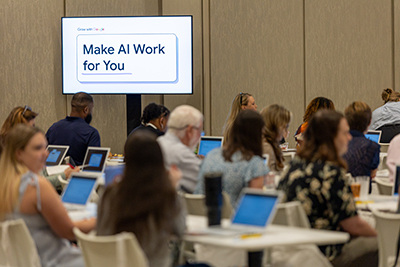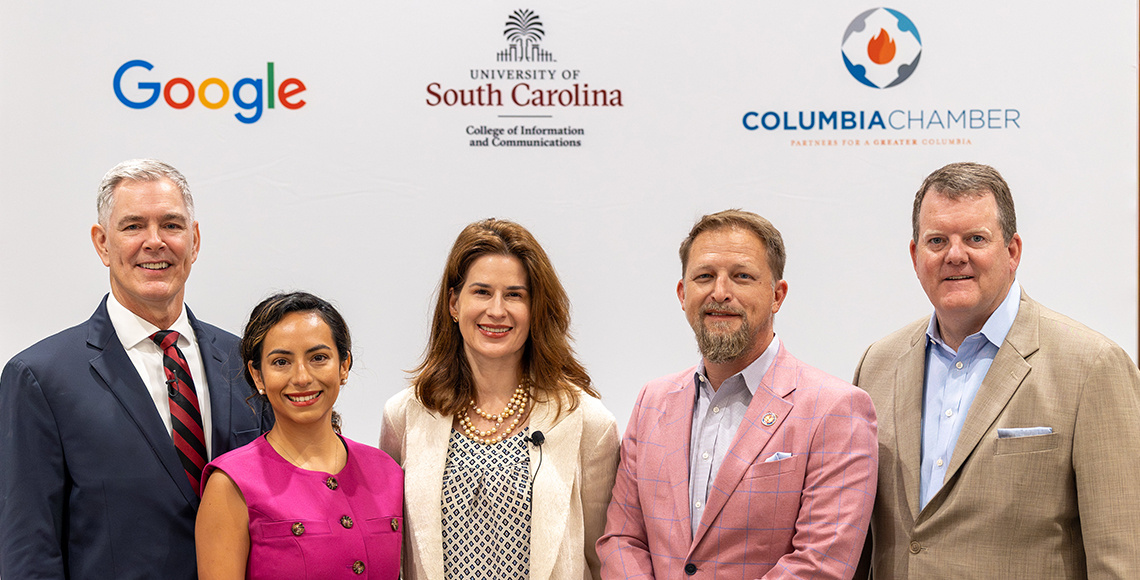Top photo: (l to r) Tom Reichert, Lucy Pinto, Anastasia Kudrez, Brandon Guffey, Carl Blackstone
Grow with Google brought their “Make AI Work for You” workshop to Columbia on Aug. 26. More than 100 community members representing small businesses and nonprofits came together at the Pastides Alumni Center to learn about leveraging AI to improve productivity and efficiency in their organizations.
“Google is deeply committed to helping small businesses in South Carolina learn AI skills to succeed in today's economy through practical exercises and coaching,” said Lucy Pinto, senior marketing manager at Google.

“We aim to empower small business owners with the confidence and essential tools to effectively leverage AI and grow their small businesses and we are very excited to bring this sort of programming to one of our home states, South Carolina,” Pinto Said.
This event was co-sponsored by Grow with Google, the College of Information and Communications and the Columbia Chamber.
“This idea of using AI to help your business is huge, and more than that, it fits everybody. So, we’re excited to be hosting today,” said Carl Blackstone, president and CEO of the Columbia Chamber.
The college partnered with the Chamber and Grow with Google because the ability to use AI is critical to thriving in a business environment that changes daily, if not hourly. The college has an ongoing commitment to helping South Carolinians understand this emerging technology.
“We’ve hosted AI events for students, and our faculty have gone out to Palmetto College campuses across the state to do AI training,” said CIC Dean Tom Reichert. “We know that AI will be critical to the success of businesses and nonprofits throughout South Carolina, and we want to help individuals get the training they need.”
Anastasia Kudrez, Grow with Google’s lead trainer, explained the process of developing prompts for AI tools such as Google Gemini. The output will only be as good as the description of the task a user seeks to accomplish and the user’s explanation of the format that is needed for the results.
Kudrez advocates for the “human in the loop” method. Having a person evaluate AI results and provide guidance on how to refine those results will provide the best outcome.
“AI is not going to just magically replace you as the person working on these projects,” Kudrez said.
